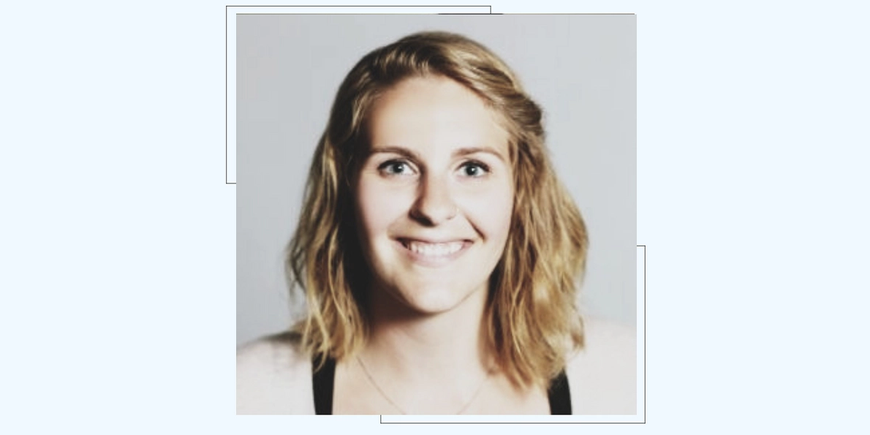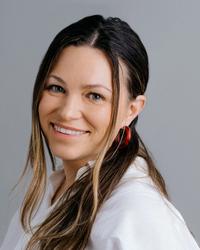Meet Karla Lifson, Sr Biz Ops Manager at Zapier and Primary Mastermind Network Founding Member
Read how Karla Lifson's past experiences in Product Management led her to her current role as Senior Business Operations Manager at Zapier and the lessons learned along the way.

As a CoS Mastermind Founding Member, Karla has engaged with similarly-minded folks who she learns from and trade experiences with -- most of whom have become friends. Interested in joining? Apply here.
Can you walk us through your career journey to date? How did your interests and/or values help shape where you landed?
I started my career in Support at a small tech company, and grew increasingly frustrated by the experience of trying to help customers with the same problems over and over, without having any direct influence on the product direction we were taking. That frustration led me into a career in Product Management for 5 or 6 years, which was an incredibly valuable experience, but ultimately left me feeling unfulfilled. By chance, a former colleague reached out to tell me about the role I ended up in at Zapier, as a Biz Ops Manager with a focus on Product & Engineering. I was lucky that it ended up being just what I was always looking for but could never define – short-term, high-impact engagements with executive and senior leadership stakeholders; a healthy mix of tactical and strategic work across multiple varying topics; and a chance to expand my horizons from Product & Engineering to a broader view across the entire company.
How did you land your current role as Senior Business Operations Manager at Zapier, reporting to the President & Co-Founder?
I was lucky that Zapier was looking for an individual who didn’t need to have done the job before, but rather a “T-shaped” generalist with specific subject matter expertise and credibility in Product and Engineering. I was introduced to the hiring manager by a mutual connection, and after a casual chat around the role and whether it might be a fit, we decided to move forward. The interview process was unlike any I’d had before: beyond the typical hiring manager and stakeholder interviews, they assigned me a data analysis take home test in which I was asked to pitch a set of recommendations based on a raw (fake) data set, loosely scoped to 2-3 hours of work. And my final round involved a second take-home composed of two parts: the first was writing a (fake) company memo based on some raw notes regarding a vacation policy change; the second was a written challenge in which I had to defend my position on why I would invest in or choose to short-sell the stock of Zoom, and then debate that position with an Exec live. The rest is history, but what I found remarkable was how much I genuinely enjoyed the assignments and how relevant they felt to the role (without getting to the point of doing free work). It was a good omen for what was to come.
How did you go about taking on more Chief-of-Staff like responsibilities that resulted in a transfer and promotion from your previous role?
A few months after I joined, one of the co-founders, Mike Knoop, stepped (back) into the President/Chief Product Officer role and therefore became my primary stakeholder. In our first conversations I asked a ton of questions to get a better sense of the problems he was seeing and where he needed the most help. He identified he needed help in Product Operations, and since I was trying to diversify beyond Product, we aligned that the best solution would be for me to help solve the most pressing operational problems in the Product org in the short term, and run a search for a permanent Product Ops Manager on a parallel track. In the meantime, Mike and I collaborated on a few other large scale projects, primarily a significant re-org and vision adjustment, for which I raised my hand to quarterback the tactics and communication. Once we shipped the re-org, and having built a strong foundation of trust, Mike and I agreed that I would move from my role in the centralized Biz Ops team to report to him semi-permanently for a Chief of Staff “tour of duty,” which would be up for renewal after 12-18 months.
What has been the most rewarding part of the role so far? The most surprising and/or
challenging?
The most rewarding part of this role has been in influencing the direction of a company that is continually growing, scaling, and reinventing itself to be better, more mature, and more successful. Each year I look back and literally marvel at the positive change that has happened and the progress we’ve made. Funny enough, that aspect of my role is probably also the most surprising and the most challenging. I’ve been pleasantly surprised by the willingness of the company and its leaders to evolve as the company grows, and at their willingness to hear new opinions from new voices, and consciously mature long-held practices and processes that may no longer serve the company’s present or future. And I’ve continually been challenged by the responsibility to scale our operations as we grow, especially those that haven’t had as much attention in the past and might have lagged behind our growth.
What is something that you are very good at? How did you develop that skill? What advice do you have for someone working on it?
I can fairly accurately and consistently clock other people’s needs, motivations, and engagement styles, and develop individualized approaches to how I work with and influence them. This skill enables me to communicate and collaborate well with others, and in particular with my executives. In terms of developing that skill, the main thing I’ve learned is to recognize when I’m encountering relationship trials and errors, and to respond to them responsibly. I often remind myself that every conflict is an opportunity to build trust. Conflict deeply sucks in the moment, but I’ve found that it’s more than worth it to take a beat, notice the conflict, name it, self-reflect on where I could have shown up better, and be vulnerable enough to communicate that to the other person. Though I don’t get it right every time, my intention is to remain empathetic, open-minded, self-aware, and self-critical – especially when I’m given feedback, implicit or explicit!
How has networking amplified your career?
I actually don’t like networking. But I love making friends! I try to approach potential networking opportunities as an opportunity to make a friend. I’d much rather invest in relationships that I’ll appreciate regardless of whether there’s an immediate career benefit. This mindset helps me focus on the engagement versus the potential transaction, and if anything comes of it in the near or later future, that’s just a cherry on top. This might look a little less “professional” by common standards, but often results in a fun, interesting, human conversation, with work being just one aspect of that conversation.
Interested in joining Primary CoS Mastermind Network and growing your community of peers and mentors? Apply to join here!
